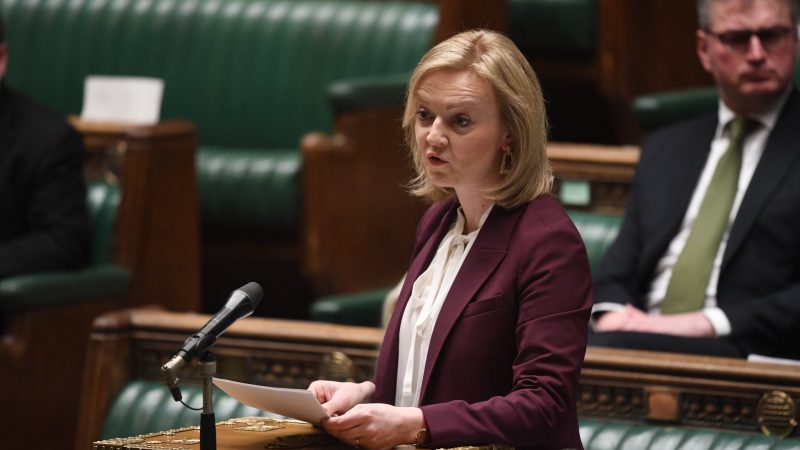
The Labour conference bubble has been well and truly burst by the alarming economic aftermath of Kwasi Kwarteng’s mini-Budget. The Bank of England was forced into emergency action on Wednesday, pledging to buy £65bn of government bonds over the next fortnight in an attempt to restore stability to the markets. The Bank said its decision to buy the bonds at an “urgent pace” was driven by concern over “a material risk to UK financial stability”. There were reportedly fears that there would have been mass insolvencies of pensions funds by Wednesday afternoon had the Bank not intervened.
Liz Truss has obstinately refused to change course. On an extensive broadcast round with regional media this morning, the Prime Minister described the proposals set out in the mini-Budget as the “right plan”, telling listeners on one local radio station: “I have to do what I believe is right for the country and what is going to help move our country forward.”
Labour’s Pat McFadden put it bluntly on Sky News this morning: the “extraordinary period of instability” the country is facing has stemmed “directly” from the Chancellor’s announcements on Friday. The Shadow Chief Secretary to the Treasury dismissed the argument that global forces were at least partly to blame, emphasising that the international context was “precisely the reason why this shouldn’t have been done”. He described Kwarteng’s mini-Budget as an “act of colossal irresponsibility” that had “called into question the economic credibility of the country”. He urged ministers to revisit the package, telling viewers: “This is not a game, they are playing with the livelihoods of people.”
Keir Starmer has called for parliament to be recalled early from conference recess to scrap the mini-Budget “before any more damage is done”. The Labour leader declared that the current crisis was “made in Downing Street last Friday”, adding: “And for what? For uncosted tax breaks for those earning hundreds of thousands of pounds.” Tory plans to scrap the top rate of income tax – the 45% rate for earnings over £150,000 – has unsurprisingly been a particular focus of the opposition’s criticism. The party confirmed that it would reinstate the top rate of tax and outlined a number of policies at conference it said it would fund through the revenue raised, including introducing breakfast clubs at every primary school in England.
Labour’s 17-point poll lead over the Tories during conference – the party’s largest lead since 2001 – grabbed headlines. But perhaps even more significant is the latest polling released by YouGov on Wednesday evening, putting Labour 17 points up on the Conservatives specifically on economic growth. Labour has long attacked the Tories for having “lost control of the economy”, and this new polling indicates an increasing number of voters agree – a monumental shift in public opinion when you consider Shadow Chancellor Rachel Reeves declared just a year ago that Labour still had not broken the narrative that the party could not be trusted with the economy after the 2008 financial crash.
Sign up to LabourList’s morning email for everything Labour, every weekday morning.



More from LabourList
Government abandons plans to delay 30 local elections in England
‘The cost of living crisis is still Britain’s defining political challenge’
‘Nurses are finally getting the recognition they deserve’